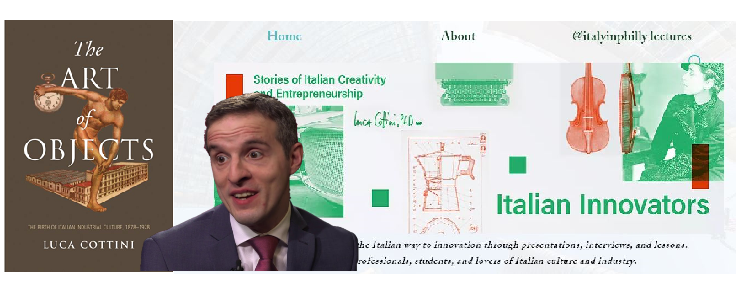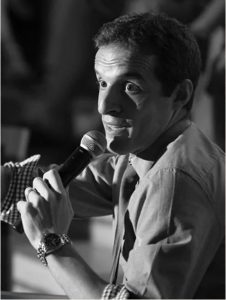 Interview by Tiziano Thomas Dossena
Interview by Tiziano Thomas Dossena
Luca Cottini was born and raised in Varese, Italy, and completed his undergraduate degree in Classics at the University of Milan. After moving to the United States, he specialized at Notre Dame and Harvard on Italian modernist literature, and in the early industrial culture, focusing his research on the 19th and 20th centuries. He is the founder of Italian Innovators, a podcast about Italian entrepreneurs and artists…
L’Idea Magazine: Prof. Cottini, I highly enjoyed the story behind the creation of the bicycle, as we know it today, by Italian industrialist Edoardo Bianchi as it appeared on Italian Innovators, your YouTube channel. Could you tell our readers what prompted you to create the podcast, now YouTube channel, and what are its aims?
Luca Cottini: Italian Innovators is born out of my academic work, as a professor of Italian Studies at Villanova University, as a scholar of Italian literature, and a cultural historian of Italy’s early industrialism. The project is born as an expansion of my scholarly monograph The Art of Objects. The Birth of Italian Industrial Culture, 1878-1928 (University of Toronto Press, 2018), which explores the origins of the Italian culture of design and traces its beginnings in a number of irregular and unforeseen encounters of Italian entrepreneurs and artists at the turn of the 20th century. The story of Edoardo Bianchi, and of Boccioni’s pictorial representation of bicycles, is one of my favorite chapters in the book.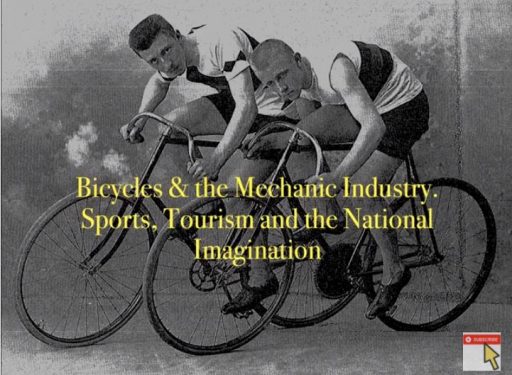
L’Idea Magazine: When you talk about people like Bianchi, Bialetti, Ferrero, Lamborghini, you are actually opening up a different understanding of the products themselves…
Luca Cottini: In presenting the stories of these entrepreneurs and innovators, I aim to explore the concentric network of their products (from the market to advertising, from social reception to symbolic representations in literature, art, or philosophy). In reconstructing this context, I aim to isolate the key factor that sparked their innovations, may it be rivalry (as in the case of Lamborghini) or scarcity (as in the case of Ferrero and Bialetti). By placing their singular stories in dialogue with Italy’s aesthetic tradition I aspire to sketch asystematically, through episodes, an ideal profile of the Italian innovator or a more profound explanation of Italy’s success model. For me, the core of the Italian way to creativity, innovation entrepreneurship unequivocably lies in its deliberate fusion of arts and industry, beauty and technology, crafts, and production.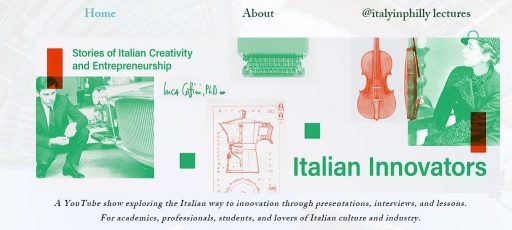
L’Idea Magazine: I see that you also have a website with the same name and theme (ItalianInnovators.com). Is this website a portal for the YouTube show?
 Luca Cottini: The website is connected to the YouTube channel and provides a more detailed presentation of the overall project and of my scholarly work. It offers in a glance the vision I want to give of Italy, not as a repository of past marvels, but rather as an incredibly lively piazza of creativity and innovation. On the website and on the channel, I compile this panoramic view by way of various episode formats. In the #innovators section, I trace the intellectual and industrial profile of great contemporary Italians in fashion, design, technology, communications, or and science, from the past (e.g. Camillo Olivetti, Elsa Schiaparelli, Davide Campari) and from the present (e.g. Brunello Cucinelli, Milena Canonero, Massimo Bottura). In the #interview section, I introduce conversations with leading figures of academics in Italian studies or successful professionals as a way to introduce my Anglo-Saxon audience to the ongoing contributions that Italy continues to put forth in our contemporary world. Among others, I interviewed Mauro Porcini (chief designer at PepsiCo), Ignazio Marino (surgeon at Jefferson and former mayor of Rome), Clio Zammatteo (makeup entrepreneur), Fiorenzo Omenetto (Fortune 50 innovator), and Gaetano Di Tondo (Vice-president of Olivetti). In the #lecture section, I publish the recordings of my online presentations, which have been sponsored by the Consulate General of Italy in Philadelphia, under the initiative of Consul Pier Forlano, and which deal with the contents of the show and my ongoing research. Then there are two sections, #ItalianModernities and #ItalianAges, which I conceive as a public course available to everyone.
Luca Cottini: The website is connected to the YouTube channel and provides a more detailed presentation of the overall project and of my scholarly work. It offers in a glance the vision I want to give of Italy, not as a repository of past marvels, but rather as an incredibly lively piazza of creativity and innovation. On the website and on the channel, I compile this panoramic view by way of various episode formats. In the #innovators section, I trace the intellectual and industrial profile of great contemporary Italians in fashion, design, technology, communications, or and science, from the past (e.g. Camillo Olivetti, Elsa Schiaparelli, Davide Campari) and from the present (e.g. Brunello Cucinelli, Milena Canonero, Massimo Bottura). In the #interview section, I introduce conversations with leading figures of academics in Italian studies or successful professionals as a way to introduce my Anglo-Saxon audience to the ongoing contributions that Italy continues to put forth in our contemporary world. Among others, I interviewed Mauro Porcini (chief designer at PepsiCo), Ignazio Marino (surgeon at Jefferson and former mayor of Rome), Clio Zammatteo (makeup entrepreneur), Fiorenzo Omenetto (Fortune 50 innovator), and Gaetano Di Tondo (Vice-president of Olivetti). In the #lecture section, I publish the recordings of my online presentations, which have been sponsored by the Consulate General of Italy in Philadelphia, under the initiative of Consul Pier Forlano, and which deal with the contents of the show and my ongoing research. Then there are two sections, #ItalianModernities and #ItalianAges, which I conceive as a public course available to everyone.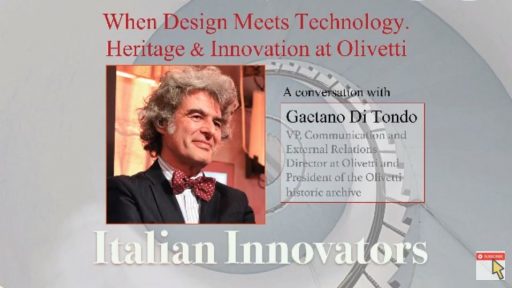
L’Idea Magazine: I see that you have also free courses on your website. It’s a great idea, and I will gratefully take advantage of that. What are the courses about?
Luca Cottini: For me studying (as a zeal for learning) is inseparable from teaching (as an empowering art of sharing). In this sense scholarly research is intimately connected not just to storytelling but also to teaching. This year I am releasing the lessons of three itineraries through Italian culture, which will be the three components of the Italian Innovators course. In the lessons #ItalianModernities I trace the history of Italy’s impact in fashion, design, food, communications, photography, cinema, or transportation. In the lessons of #ItalianAges I present a cultural history of Italian from the middle ages to the present, from the dual perspective of the arts and technological innovation. In the lessons of #ItalianBeauties, I explore the key traits of Italy’s way to beauty: savoir faire, limit & creativity, heritage, and cultural diversity. Every month I am releasing one lesson of Italian Ages (on the 7th) and one of Italian Modernities (on the 21st), in addition to the #innovators episode (on the 1st) and the #interview (on the 15th). I will publish the four lessons of #ItalianBeauties between July and August.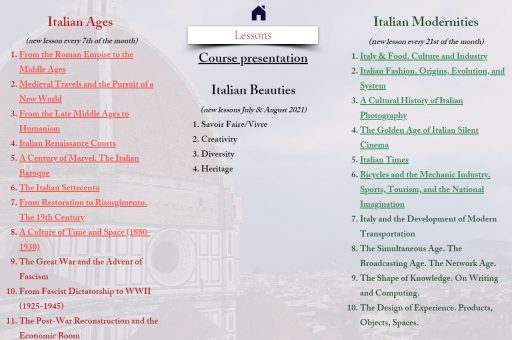
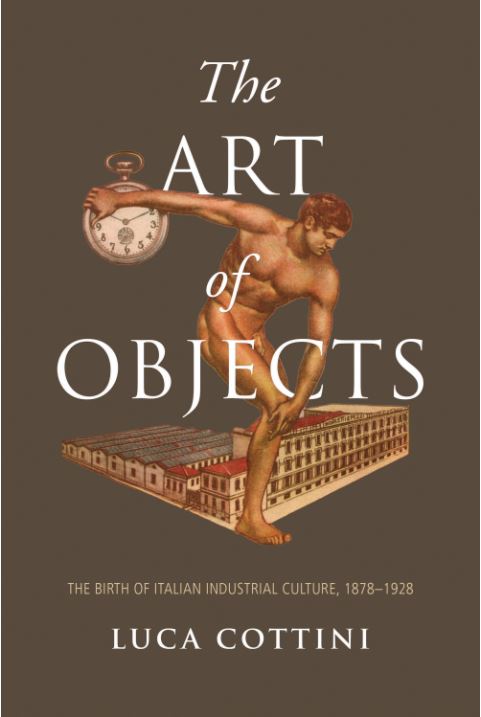 L’Idea Magazine: “The Art of Objects. The Birth of Italian Industrial Culture, 1878-1928” is your last book. What is the prime concept behind this book?
L’Idea Magazine: “The Art of Objects. The Birth of Italian Industrial Culture, 1878-1928” is your last book. What is the prime concept behind this book?
Luca Cottini: The book is a cultural history of early Italian industrialism and an investigation on the formation of Italy’s industrial culture at the turn of the twentieth century. In this work, I trace the origins of the Italian culture of design by focusing on several objects of mass consumption (e.g. watches, bicycles, gramophones, cigarettes, cameras, clothes, or toys), by observing their transformation from commercial items into aesthetic icons, and by reconstructing upon them the a-systematic overlapping of industrial planning and cultural imagination. By exploring the industrial transition through the double lens of aesthetics and entrepreneurship, the book maps a more comprehensive and interdisciplinary view of the age between post-unification and Fascism. In observing the irregular process of modernization of Italian industry, the book considers the nation’s so-called “imperfect” industrialization not as a flawed model but rather as a key component of its success, forcing Italian intellectuals and industrialists to a state of creative instability and continued quest for original solutions.
L’Idea Magazine: You have 12 publications, which is more than a respectful number, on the connection between the Italian cultural world and/or the industrial production and invention. In some, you shared the credits with names such as Umberto Eco. We cannot talk about all of them in an interview, but I would like to touch on a few of them, if you don’t mind. For example, you seem captivated by Italo Calvino’s life and works, to the point of writing a whole book and two papers about him. Why is that so?
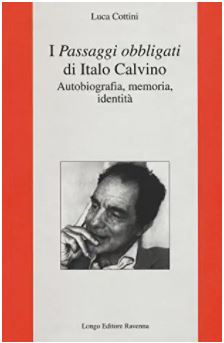 Luca Cottini: My book on Calvino, I passaggi obbligati di Italo Calvino. Autobiografia, memoria, identità (Longo, 2017) deals with a collection of autobiographical short stories by Italy’s most renowned writer in the second half of the 20th century. The stories deal with his childhood in Sanremo, his experience with cinema, his participation in the partisan war, and his life in Paris. These stories really open up fascinating windows into Italian culture, tapping into Calvino’s relationship to Fascism or cinema, the correlation of fiction and memory, or the impact of waste in our post-modern societies. I wrote about Calvino as editor of Fenoglio (author of Una questione privata, which Calvino defined the novel of resistance) and about Calvino’s stylistic identification with Fellini in his short story Autobiografia di uno spettatore. Why Calvino? He is a phenomenal entry point into the complexity of the 20th century and also a thinker who elaborated a serious reflection on the mechanisms of storytelling, something that is key to understanding similar processes in design as well as the nature of literature as a mental architecture. In this sense, Calvino’s Invisible Cities (1972) is the prototype of the book which becomes a building, and a reflection of Italy’s architectural practice to plan buildings as books.
Luca Cottini: My book on Calvino, I passaggi obbligati di Italo Calvino. Autobiografia, memoria, identità (Longo, 2017) deals with a collection of autobiographical short stories by Italy’s most renowned writer in the second half of the 20th century. The stories deal with his childhood in Sanremo, his experience with cinema, his participation in the partisan war, and his life in Paris. These stories really open up fascinating windows into Italian culture, tapping into Calvino’s relationship to Fascism or cinema, the correlation of fiction and memory, or the impact of waste in our post-modern societies. I wrote about Calvino as editor of Fenoglio (author of Una questione privata, which Calvino defined the novel of resistance) and about Calvino’s stylistic identification with Fellini in his short story Autobiografia di uno spettatore. Why Calvino? He is a phenomenal entry point into the complexity of the 20th century and also a thinker who elaborated a serious reflection on the mechanisms of storytelling, something that is key to understanding similar processes in design as well as the nature of literature as a mental architecture. In this sense, Calvino’s Invisible Cities (1972) is the prototype of the book which becomes a building, and a reflection of Italy’s architectural practice to plan buildings as books.
L’Idea Magazine: You also seem to write about Palazzeschi more than about other writers. Why?
Luca Cottini: Palazzeschi understands vividly an important moment of transition in Italian culture, from a humanistic endeavor to an industrialized format (in magazines, journals, and in the broader publishing market). Faced with the industrial serialization of language, and the academic crystallization of poetic expression, Palazzeschi’s theatrical irony and linguistic subversiveness not only interrogates provocatively the meaning of the ongoing changes (without falling into a dull acceptance) but also invents new forms of literary communication, in his acrobatic theatre of verbal performance, in his poetry-in-motion, or in his stunning novel Il codice di Perelà (1911), whose protagonist, a man turned into a cloud of smoke, becomes a prophetic symbol of the bodyless ubiquity of our internet age.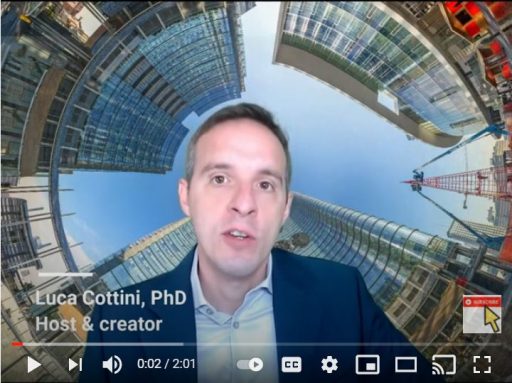
L’Idea Magazine: Calvino, De Amicis, Alvaro, D’Annunzio, Papini, Palazzeschi… You covered quite a few Italian writers in your essays and articles. What was the connection between these writers that made you choose them? Which one fascinates you the most?
Luca Cottini: In each of them I read a piece of our present, which, despite what we might think, is quite similar to theirs. A time of constant transition and a modernity invaded by new technologies, experiences, and products. I find D’Annunzio fascinating for his ability to read the transition of culture from a humanistic endeavor to a performing space and a mass industry. As I discuss in one of my essays, D’Annunzio is also the first Italian author who rediscovered the genius of Bernini after two centuries of oblivion. Even though it might seem surprising, one of the key influences of European modernism is actually the 17th-century poetics of the Baroque, in their common tension to read radical changes, define new parameters, and create an experience of uniqueness vis-à-vis standardization processes (the scientific method or industrialization).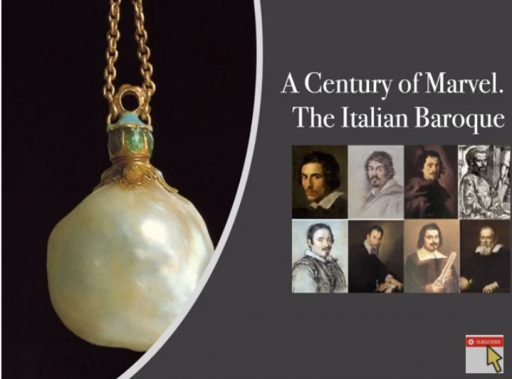
L’Idea Magazine: Your educational interests appear to be quite diverse, ranging from Italian Literature to early industrial culture, but you also are showing an interest in visual studies and social history, giving lectures on various topics related to these subjects. Which of these subjects do you teach? What triggered your interest in such varied subjects? Do you, as a historian, feel that they connect to each other in more than one way?
Luca Cottini: My work on the origins of Italian design naturally connected my literary studies to a more visual dimension, but some of my courses at Villanova (on Italian design, or business in Italy) made my traditional literary teaching a bit more experimental. The interviews I regularly post with designers, entrepreneurs, and professionals in the industry made me observe my literary formation as a resource to observe different business models. Rather than exploring the economic facts of a business, my point of view then investigates the culture that generates a company, as well as the culture that a company generates. In the Italian model, where the industry is de facto a culture maker, this dynamic is even more prominent.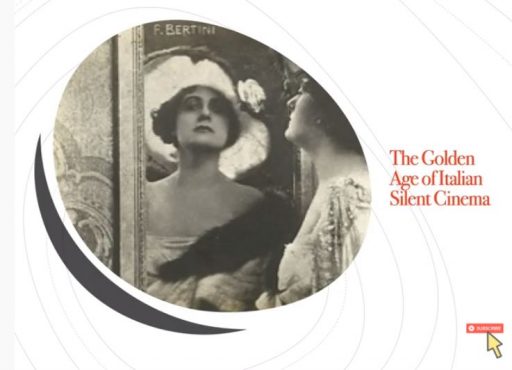
L’Idea Magazine: Do you believe that the kind of innovators we have seen in the past would not have such stimuli to become innovators if they would live in today’s globalized and technological world?
Luca Cottini: The experience reading 50 years of Corriere della sera and Illustrazione Italiana, from 1880 to 1930 showed me that the energy and dynamism of the early industrial generation were stirred not only by its lively ambition to become the protagonist of their present, but also by the desire to leave a mark in future generations. Their transition to a globalized world was as shocking as ours (think of the diffusion of telephones, radio, cinema, in parallel with TV, mobile phones or internet streaming). What we are called to live is a dimension of innovation that intersects heritage, the pursuit of originality in the present, and future planning. In this sense, the forward-looking attitude of those who preceded us is a gift for us to mature in the awareness that our future will judge the substance of our innovations.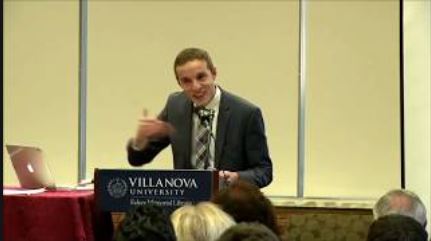
L’Idea Magazine: Are you working on any new projects or books?
Luca Cottini: I’m currently working on two books. One on the U.S. military, cultural, and political expansion in the 1890s, a phenomenon called Americanism, observed from the perspective of Italian society and culture. And the other on the characters of Italian excellence in culture and industry, as a continuation of the Italian Innovators project.
L’Idea Magazine: If you had the opportunity to meet any characters from the past or the present, anyone, who would be that person? What would you like to ask them?
Luca Cottini: In my interviews, I am given the incredible opportunity to meet people who excel in their disciplines and I hope to convey this sense of awe to my viewers. What I ask them is born of the desire to learn from someone who walked a successful path of entrepreneurship. I would spend an entire afternoon with many of the innovators I deal with. If I were to choose one, I would pick Walter Bonatti, one of the world’s most renowned mountaineers, who first climbed the Matterhorn in a winter solo expedition in 1965. I would ask him. What was the view from out there? What did you think of it?
L’Idea Magazine: A message for our readers?
Luca Cottini: If you arrived here, thank you and I hope something caught your attention. I wish for you that you will find your idea soon, as a surprising moment, as a hypothesis connecting different fields or intuition, as an illumination that gives life its whole taste.


